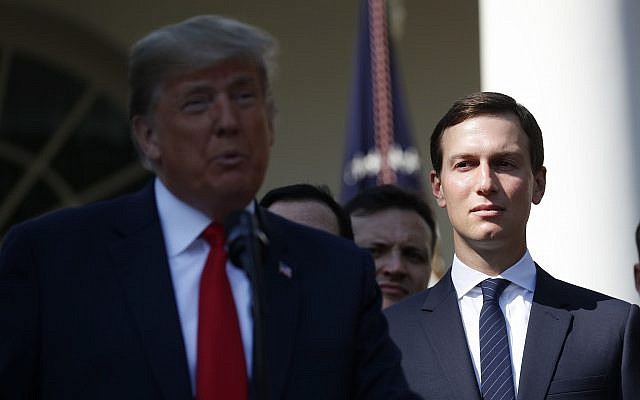“The Indian security officer would not allow us to meet anyone at the hotel.” Sartaj Aziz, Adviser to Prime Minister on Foreign Affairs said after the Indian government did not allow him to hold a scheduled press briefing on sidelines of Heart of Asia conference on Dec. 4, citing the security reasons.
Sartaj Aziz, who is Pakistan’s de-facto foreign minister, was not allowed to leave the hotel premises and to meet anyone during his stay which is not only a violation of diplomatic norms but has brought the Indo-Pakistani relations to a new low. Sartaj Aziz was scheduled to do a press briefing after the Sixth Ministerial Heart of Asia conference held in Amritsar. He later held a press conference in Islamabad on his return. He commented that the security arrangements were strange in India since they were not allowed to meet any one. Moreover, the Indian officials tried stopping Pakistani High Commissioner to India, Abdul Basit, to speak with media persons at the conference venue as well. After arguments with Indian security officials Abdul Basit merely interacted with Pakistani Journalists. Pakistani High Commissioner, while talking to Pakistani journalists, said that the Indian hosts of the conference have cited “security reasons” for not allowing the press briefing by Sartaj Aziz, Pakistan’s de-facto foreign minister.
Indian authorities citing “security risk” while denying Pakistan’s de-facto foreign minister, the right to hold a press conference has sent very confusing signals. Both India and Afghanistan endlessly talk of militancy and terrorism in Pakistan, President Ashraf Ghani, at the very conference at Amritsar, had rejected Pakistan’s offer of $500 million development aid arguing that Pakistan should spend this money to fight extremism in its territory. But Pakistan had never been in a situation where a foreign dignitary – Afghan or Indian – was denied right to hold a press briefing for “security concerns”. If Pakistan had denied Indian foreign minister, Sushma Swaraj, right to hold a press briefing after a conference it would be seen as a deliberate insult. Question naturally arises how could Indian authorities not provide security at the site of a planned international conference being attended by high value security concerns from around 40 countries?
During the Heart of Asia Conference, Afghan President Ashraf Ghani, while pointing fingers towards Pakistan, argued that Taliban would be finished off by his security forces in a month if they did not have sanctuaries on the Pakistani side. Ghani forgot that recently respected US general David Petraeus, (Former) Commander of the NATO International Security Assistance Force in Afghanistan, and later Director of Central Intelligence Agency (CIA) in an interactive discussion at British think tank, Royal United Services Institute (RUSI) in London, had said that he – as commander of the US lead international forces and later as head of CIA – could never find a convincing piece of evidence which supported the alleged double game by Pakistani ISI or its explicit support to elements associated with terrorism.
NO PAKISTAN ROLE IN FOMENTING TROUBLE IN AFGHANISTAN: GEN. PETRAEUS
Sartaj Aziz, Pakistan’s de-facto foreign minister had also planned to visit golden temple but he was not allowed again due to security concerns. Whereas a group of delegates led by Indian Foreign Secretary S. Jaishankar visited the Golden Temple and Jallianwala Bagh in Amritsar. Indian Prime Minister Narendra Modi and Afghanistan’s President Asharaf Ghani were part of that group.
Heart of Asia Conference at Amritsar came at a time when several Sikh organizations across the world are trying to draw international attention towards the plight of Sikhs. There have been protests inside India and in major cities – like London – across the world. Recently Legal Advisor of “Sikhs for Justice (SFJ)” Gurpatwant Singh Panunn wrote an open letter to Sartaj Aziz requesting him to speak about their movement of Independence Referendum at the Heart of Asia Conference being held at Amristar, one of the holiest cities of Sikhism being the location of Golden Temple.
Read more: Pakistan’s Diplomatic Offensive to build pressure on Narendra Modi?
Looking at the overall situation, government sources in Islamabad, who wanted to remain unnamed think that Indian PM, Narendra Modi, who is not only mentioning Baluchistan and Gilgit Baltistan repeatedly on international forums but is also pushing Afghanistan to support Baluch insurgents was afraid that Pakistan’s de-facto foreign minister, under the circumstances, might make any comments about the Sikh movement in Amritsar. Such a situation would have been embarrassing for Narendra Modi whose main opposition, Congress, had already criticized him for raising Baluchistan issue. Pakistani sources were not sure if Sartaj Aziz had any such plans; they think that Narendra Modi government had merely acted in panic, but it shows the extent of sensitivity Modi government attaches even to the discussion of ‘Sikh movement’ or their grievances.














